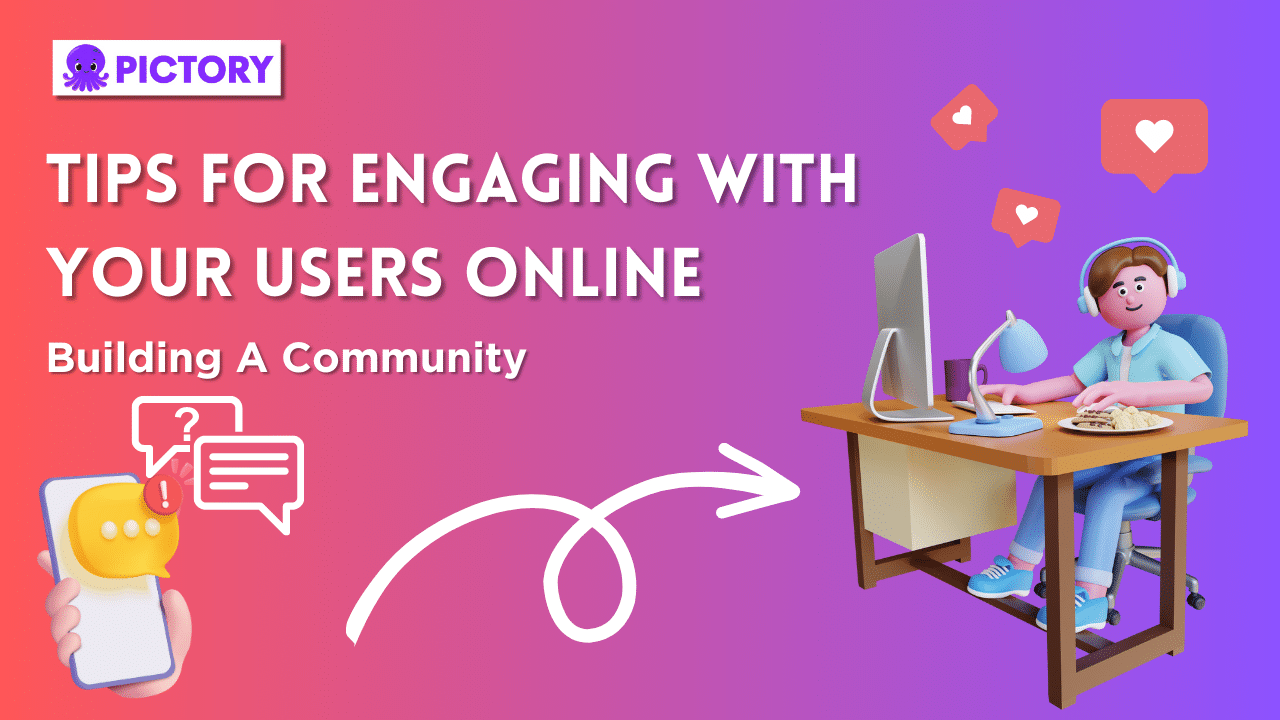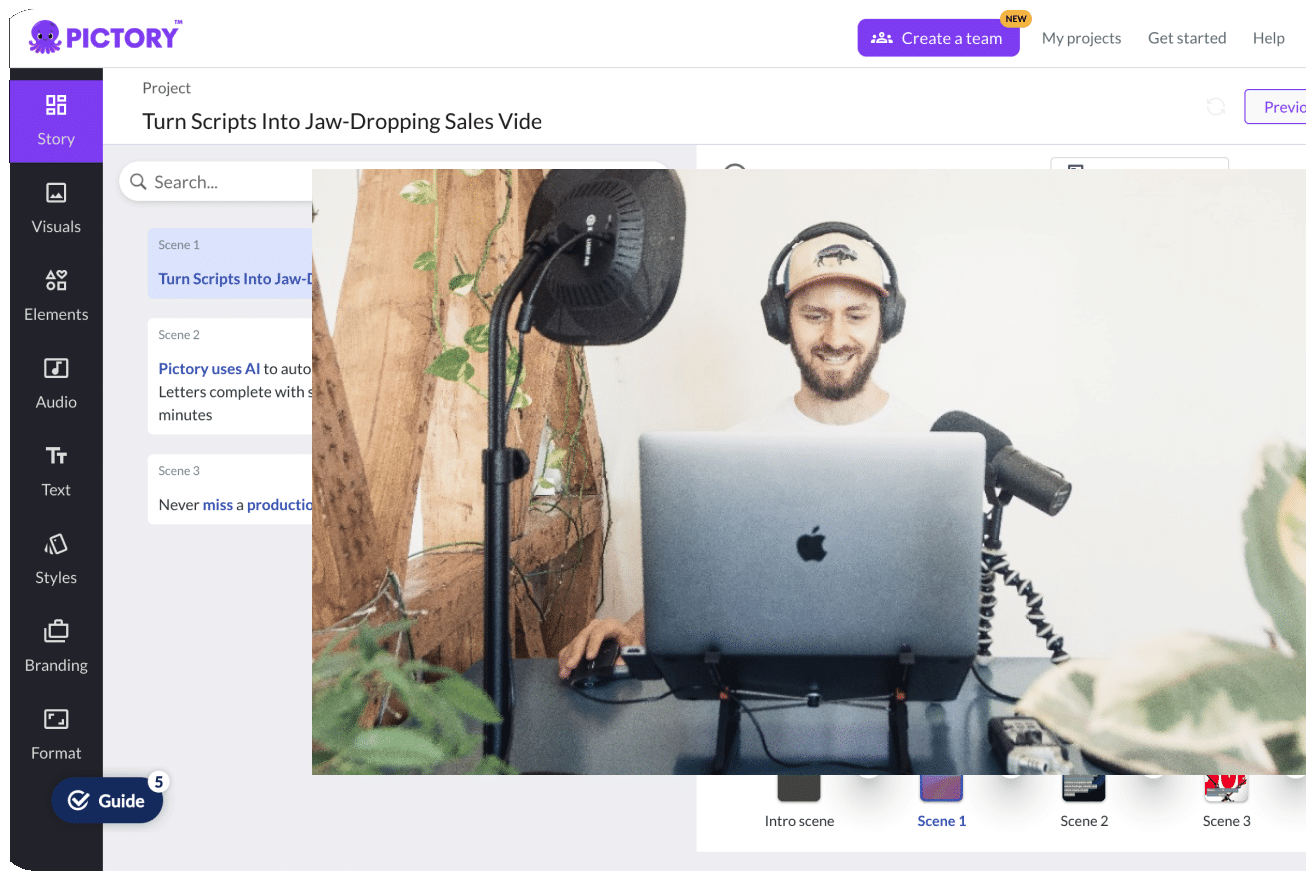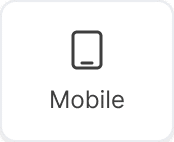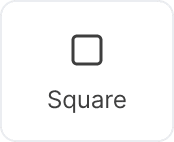In a year when US e-commerce sales are at an all-time high, it’s never been clearer how important the online customer experience is.

Most consumers are buying online, finding brands through social media, and relying heavily on the digital space to determine how they feel about a business and its services.
The best way to leverage this? Make connecting and growing your online community a priority.
Building your own community with your brand at the center of it has so many benefits.
In this article, we’ll dig deeper into what those are, share 10 tips on how to engage users on social media and build your own business-boosting community, as well as some fun content ideas to help the process.
An Online Audience vs. An Online Community
One of the most important things to distinguish before spending the effort building an online community is how it’s different from an audience.
An “audience”, in the traditional sense, is a group of spectators who watch something.
A community, on the other hand, is a group of like-minded individuals who come together over a shared interest or experience.
In social media terms, communities are also made distinct from an audience by their ability to communicate with the brand at the center of things.

They don’t just watch, they engage.
The dialogue runs both ways so that customers feel heard and seen by a business. In other words, they feel connected.
Why Your Online Community Matters
Thanks to social media, connecting with current and potential customers has never been easier.
20 years ago, if someone had a complaint or question about a brand, they’d have to call a helpline or send an email.
Now, there’s the expectation that businesses be available through social media comments sections and messages too.
Over time, how you respond to people on social media and connect with them can help create a sense of community, the benefits of which include the following.

Struggling to decide where to build an online community?
Read our article to decide Which Social Media Platform Is Best For Your Business.
Building Brand Loyalty
Any successful business owner will tell you that the most valuable customer isn’t the one that just clicked onto your website, it’s the person who comes back for a second, or even third time.
It’s the people who recommend your brand to their friends, share it online, and become invested in its success.
Brand loyalty is one of the most important aspects of online communities.
It’s the thing that inspires their growth, but it’s also what makes these communities so powerful because it ensures that the brand/consumer relationship lasts far longer than a single purchase or click.
The Value of Community Feedback
Getting feedback is rarely easy, but it’s the thing that helps so many small businesses improve their offerings.
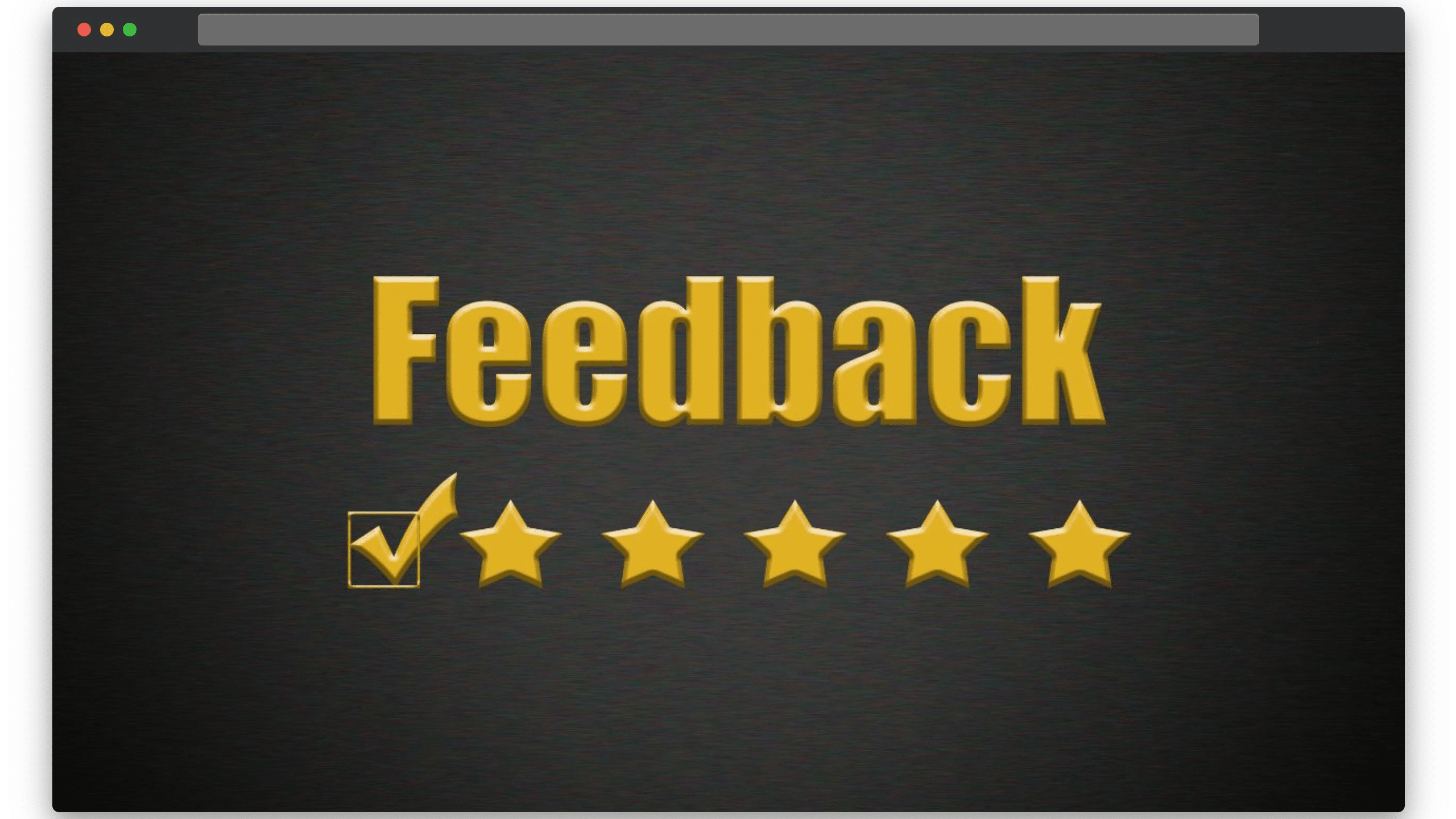
An online community is the perfect forum in which to ask customers’ opinions about new products, and how their recent experiences with your brand went.
Usually, they fit your target audience too and as a result, can offer valuable feedback on how to finesse operations.
Attract More Potential Customers
Think of social media marketing like a high school cafeteria: which table is everyone going to be vying for, the one with two people eating lunch in silence, or the table where a whole group of people is laughing together over a shared meal?

Active users and online communities help attract more people to the fray, simply because of our natural desire as humans to be a part of something.
Strong Online Communities Boost Engagement
Having a dedicated online community usually means that a business will also have a strong base of users who are quick to reply to, comment on, and share content on social channels.
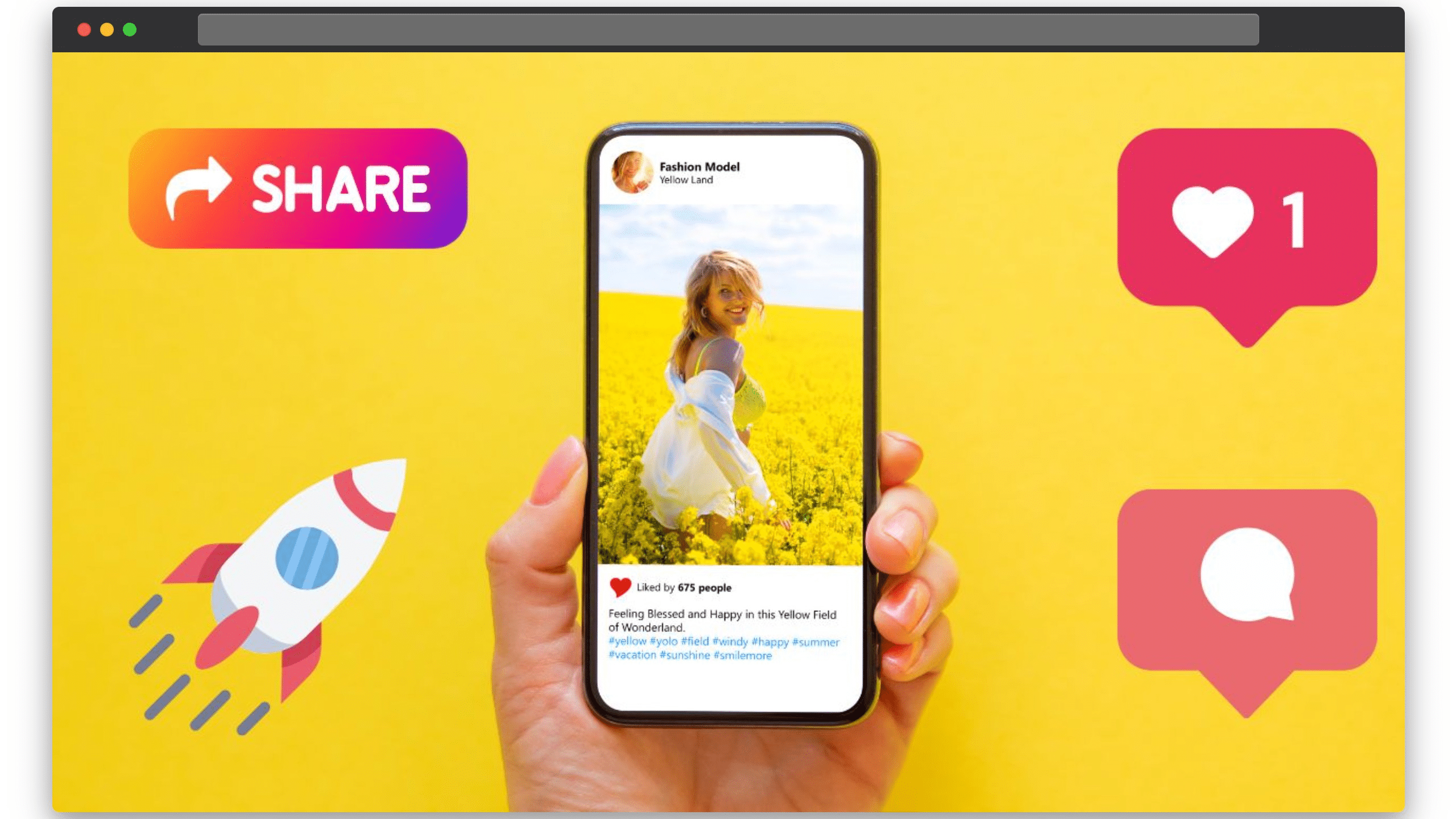
Not only does this encourage the algorithm on social media platforms such as Instagram to show an account to more people but it boosts overall engagement.
Improve Your Customers’ Experiences
Fostering a sense of community on a business’s social media platforms allows people to not only give feedback that can help improve overall customer experience but also makes it easier for people to reach out with queries and concerns.
The greater that sense of personal connection between brand and customer is, the more likely people are to walk away feeling like they had a good experience and be tempted to return for even more.
10 Tips on How to Build a Successful Online Community
Online communities have so much to offer businesses, but making meaningful connections and attracting new members into the fold takes work.
Here are 10 actionable tips to help create and support an online community so that your business can benefit from all the best parts of social media:
1. A Consistent Brand Voice
Brand voice is predominantly discussed in relation to marketing materials, but it also shapes how you speak to customers.

From video content to online messages, consider the tone and kind of language that you’d like to use when interacting with customers on social media.
This sounds small, but even having go-to emojis and phrases can help ensure a sense of consistency in your communication.
This reinforces brand awareness and makes it easier to answer comments and messages quickly.
2. Reply, Reply, Reply
Quick replies, be they on Facebook Messenger or YouTube comments, are just one of the few ways that brands can create better connections with users but it’s also one of the most effective.

It can be time-consuming though, especially for small businesses grappling with more than one social media platform.
If you’re able to, we’d always recommend having a dedicated community manager on a business team or at least one person whose job it is to keep track of all comments and messages, across social channels.
It’s ok if you can’t answer everyone but even just liking comments as they come in is a way to build that sense of two-way dialogue with online followers that, over time, builds a true community.
A great example of two-way dialogue is @ovenly, a small bakery business in New York that doesn’t reply to everything but makes sure to like comments consistently and always replies to questions from commenters.
These moments matter because they’re a chance to make an emotional connection with people online and show them the heart of how your business operates.
3. A Little Monitoring Can Go a Long Way
Community monitoring has two sides to it.
Firstly, community managers monitor to see if any frequent questions or queries pop up that could spark discussion on future product improvement or content ideas.

Taking note of what your online community keeps bringing up in a social media commenting section is one of the best ways to see gaps you might have missed.
It can even help inspire video content that further supports your community.
The other side of community monitoring is making sure that all the group members in your business’s social media bubble feel safe.
Trolls are everywhere and they can quickly derail a social media community with just a few nasty, pointed comments.
Often the best way to handle them is to block the worst accounts and delete the offending messages.
YouTube and Instagram also offer controls where businesses can choose certain phrases to automatically hide from the comment section if they appear.
Strong community activity is great, but only if it’s kept safe and positive for the users involved.
4. Give Your Community a Name
As your community grows, one of the easiest ways to unite them is to create a community name or hashtag.
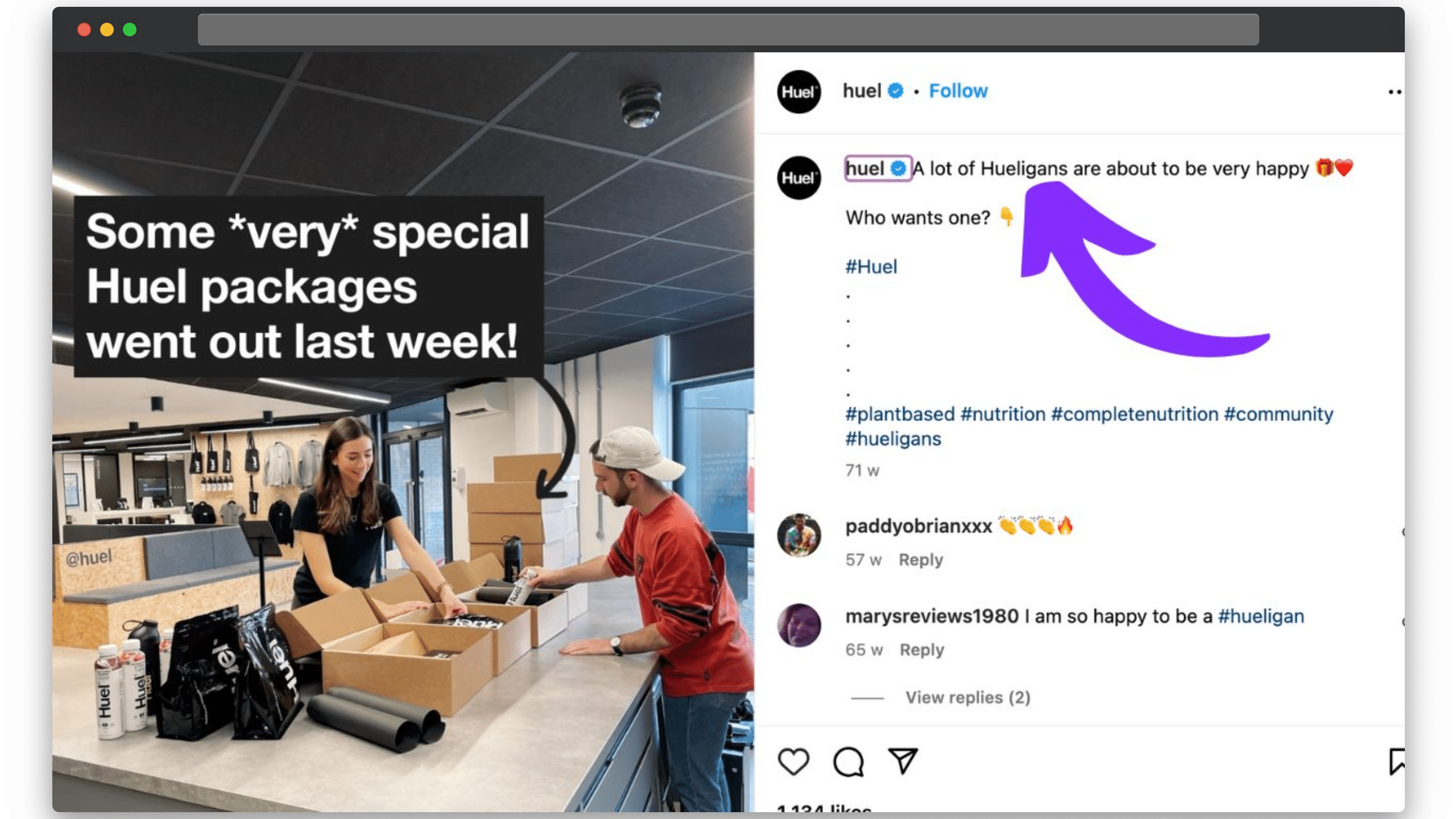
For the supplement brand Huel, that’s “hueligans” and for Calvin Klein, a way to engage their community was with “#mycalvins”.
What both do so well is borrowing from the brand name and turning it into a shared identity that their online communities can post with and use to mark their community membership.
It also implies that these brands aren’t just about a certain product, but an identity that people can subscribe to.
5. Share User Generated Content
One of the best ways to build engagement and reward your existing audience at the same time is to share user-generated content.
Any time someone tags your products or makes a video about a positive experience with your business, share it with your social media followers.
It means that you don’t have to directly promote your business and can instead rely on your community to help spark engagement and build relationships with other customers.
Since video content is twice as likely to be shared as other content, doing this in a video form is the best way to maximize engagement.
6. Find Creative Ways to Show Community Appreciation
Showing community appreciation is a highly effective way to make community members feel that they’re a valued part of a business.
It encourages them to keep interacting and sharing the way they’re doing and keeps that generous spirit alive.
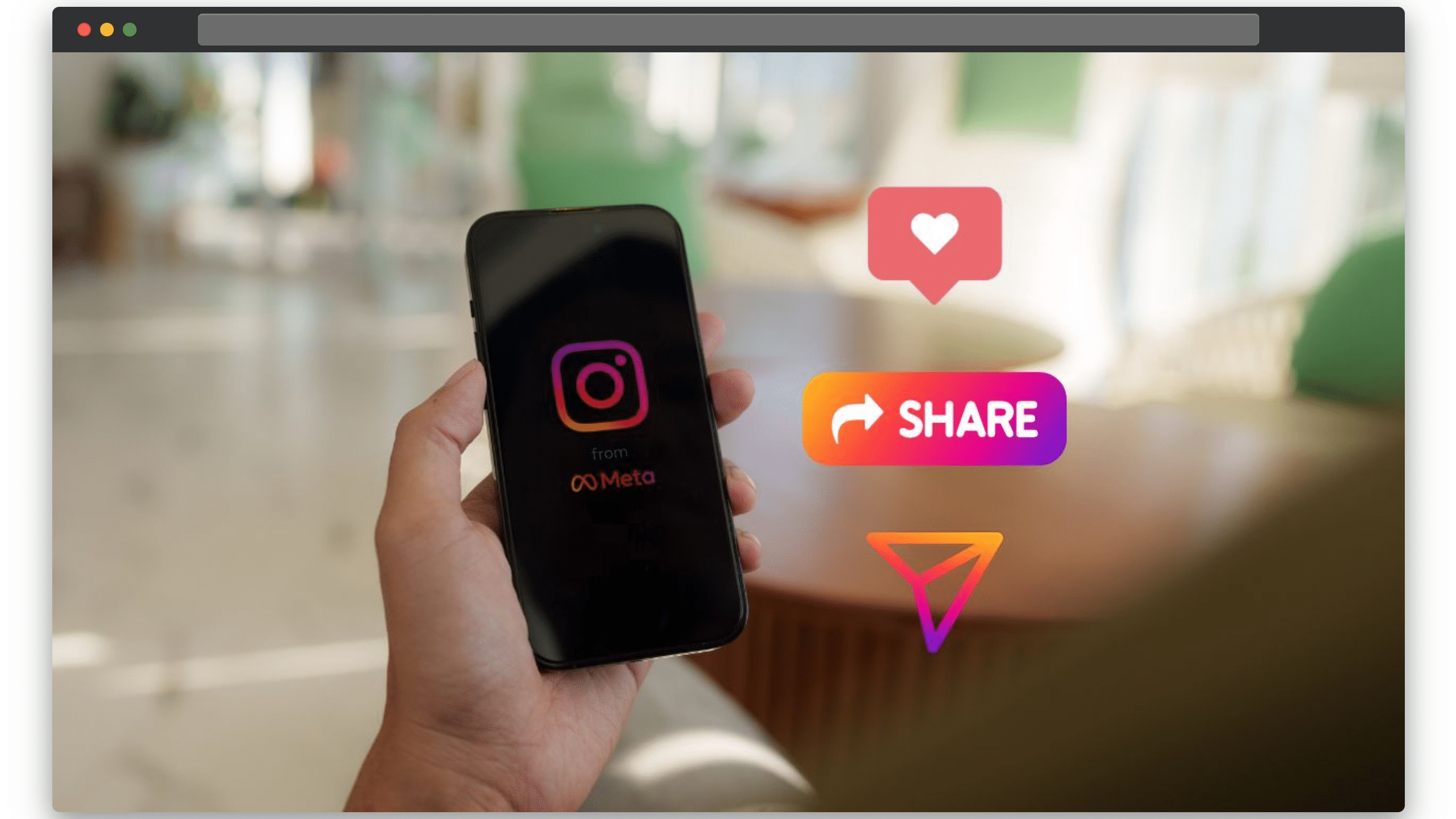
Some creative ways to show community appreciation might be:
- Highlighting lovely comments every week on your Instagram page,
- Sending thank you messages to community members you’ve noticed showing up for your brand again and again
- Sending discount codes to loyal supporters.
7. Create a Dedicated Community Page
Most social network sites can be used as a community platform as well, but many businesses choose to create a dedicated place for their online community.
Here customers can discuss topics with other users and feel empowered to share more.
There are plenty of free community platforms, but Facebook groups remain the easiest in terms of creating dedicated online communities.
8. Offer Exclusive Content
There’s a reason all the big grocery stores and fashion brands offer things like “loyalty points”.
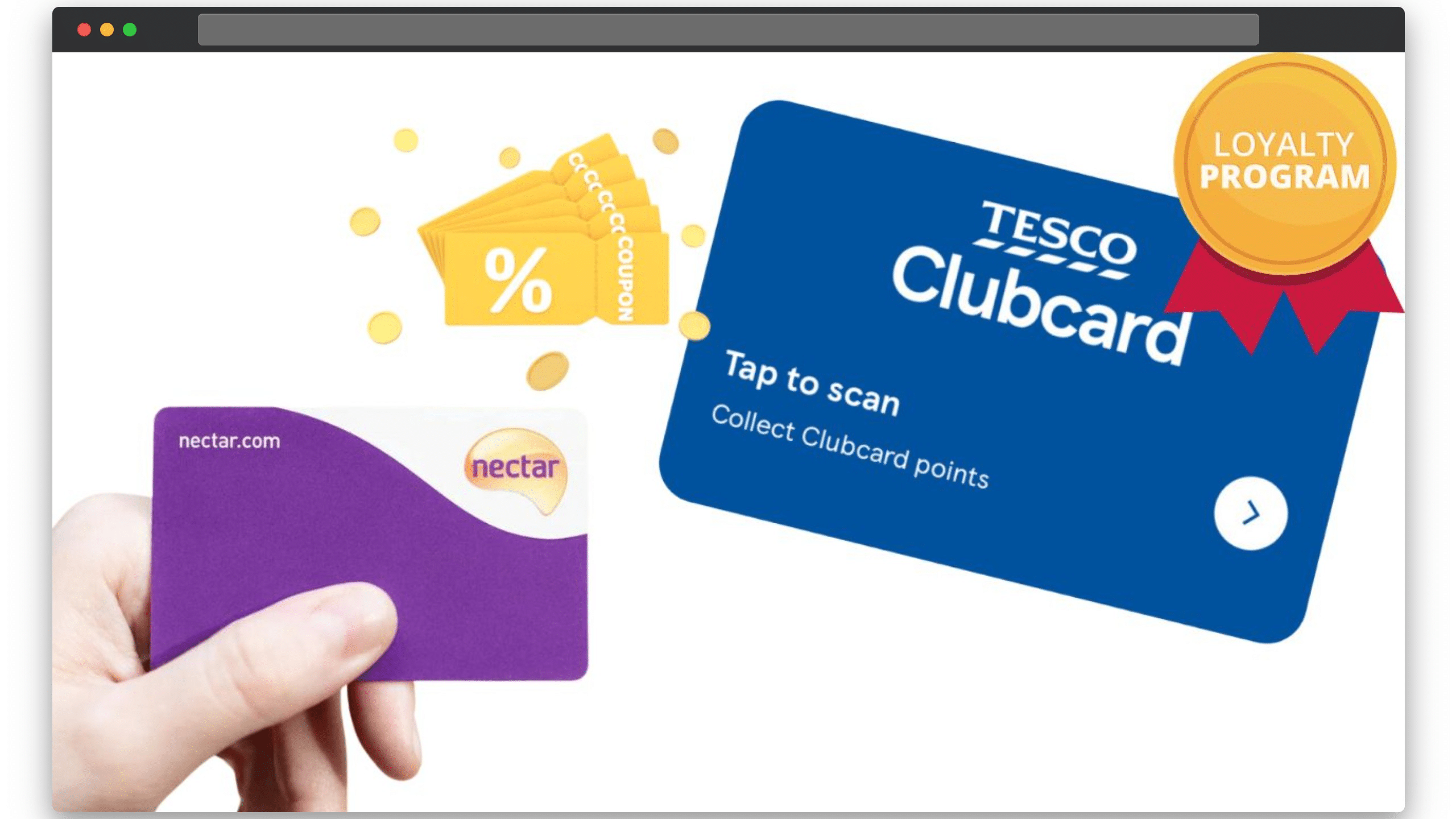
For a small business, implementing a points system isn’t always viable but there are other ways to reward your community and make them feel valued.
One of those is exclusive offerings.
For example, you could give your most dedicated online community members an insider look into your brand or a chance to see new launches early.
Things like this can be shared in a company newsletter or on a closed Facebook group.
Perhaps discounts are something you can offer or first dibs on pre-orders.
Whatever it is, the point is to make your online community feel as if they’re part of the inner circle of the brand.
When you achieve that, they’re more likely to continue their support for you.
9. Encourage Feedback from Community Members
Nothing quite combines all the benefits of an online community like community feedback.
As we discussed earlier in this article, it offers major advantages to a business, but it also does a lot for community engagement.
Something we’ve seen businesses like haircare brand Ouai do is poll users on their Instagram Stories about what they think about new packaging plans or future product launches.
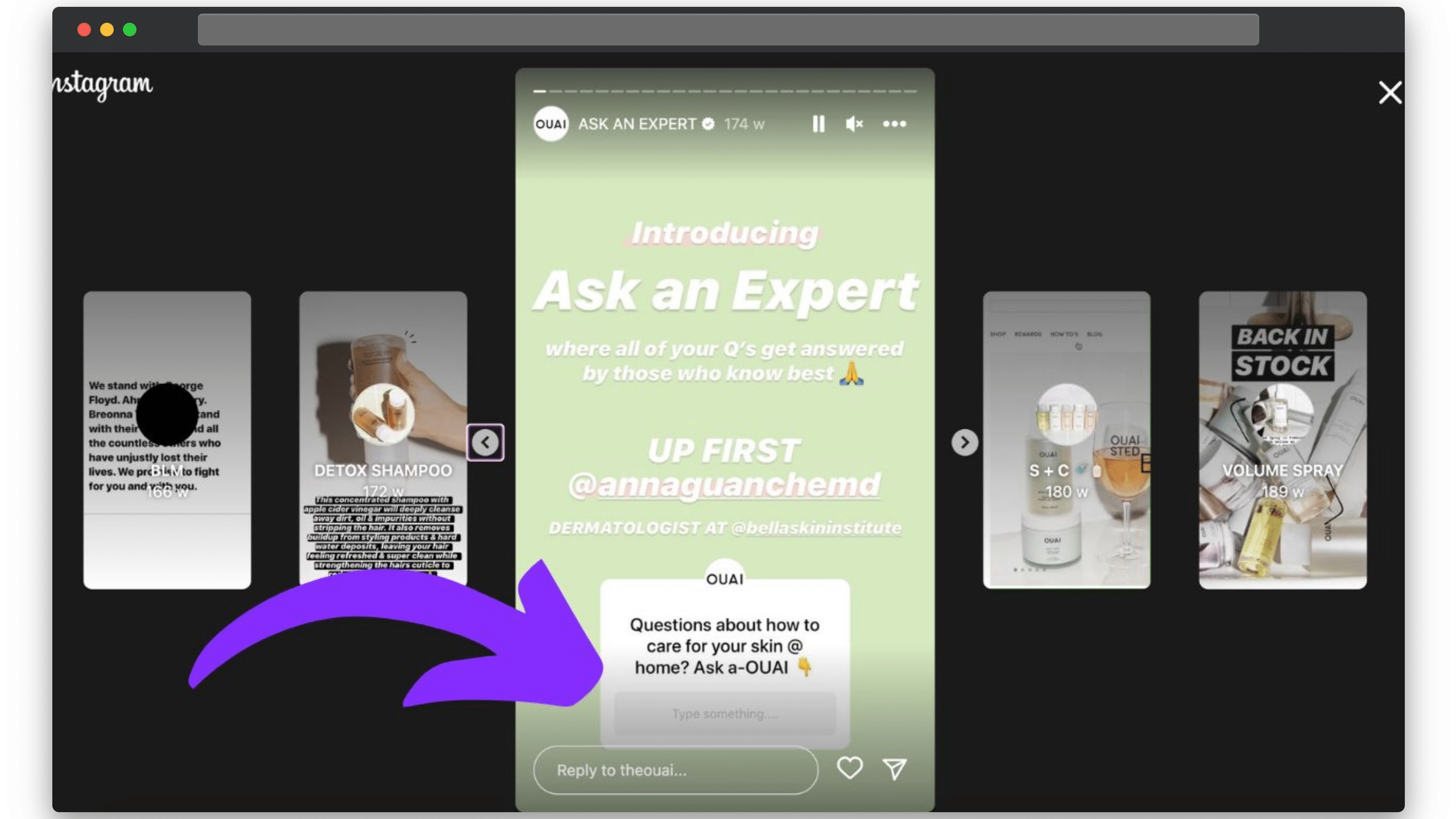
Simply asking for users’ opinions online helps make them feel involved in the business.
This, in turn, creates that two-way dialogue that is so fundamental to fostering community.
10. Connective Content
Finally, the best tip for building community and connecting with online users is to create quality content.
It might sound annoyingly simple, but creating content that makes people laugh, learn, or even just pause for a moment can connect them to your business on a personal level.
Suddenly, you’re not just another brand selling things, you’re something they associate a positive experience with.
Video content is leading the charge in this regard, simply because of how much more engaging people find it than static content.
Community Building Content Ideas with Pictory
Based on some of the tips we just mentioned, here are a few ways that Pictory can help you generate video content so that connecting with your online community is easier than ever:
A video that highlights great comments or reviews you’ve received. Input the content onto the Pictory storyboard and we’ll generate the video for you. You can even choose from our library of royalty-free music to help make it more engaging.
A text-to-video of the idea from above where you use a lovely comment as the script for your video. (Don’t worry, we’ll sort out everything from visuals to narration).
Create a video dedicated to asking for feedback on something.
Maybe you even have two products you’re considering launching – ask your audience which they want to see first!
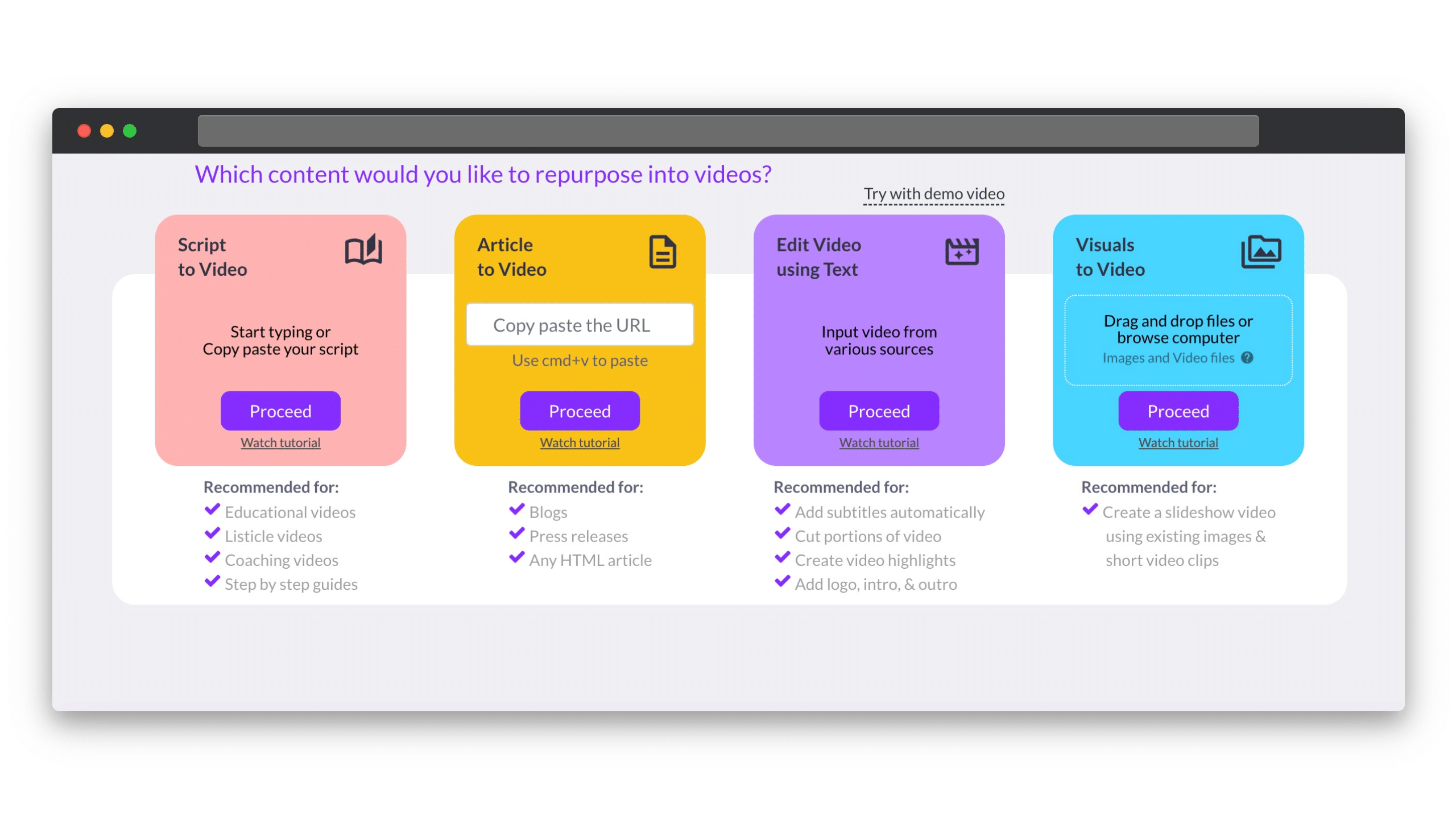
At Pictory, we have a range of AI video generation and editing tools that make it easier than ever to create content that will draw your online community together and keep them coming back for more.

